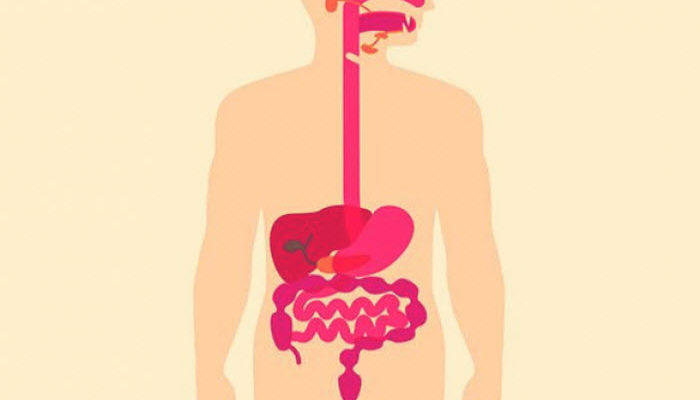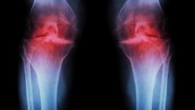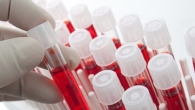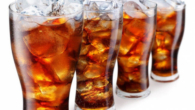
Detox – myths and truths about cleansing the body
0
A few years ago, the USA popularized the strategy of cleansing the body, rejuvenating it, and losing weight at home. It received the ringing name “detox” (or detoxification). At first, it seemed like a great chance to improve the body, especially since such stars as Beyoncé and Demi Moore resorted to detox, and they already know a lot about beauty and a healthy lifestyle. Unfortunately, detox is more of a marketing strategy than a useful method of recovery.
Yes, there is a medical term “detox”, detoxification of the body. In medicine, it means the treatment of a person whose body has a lot of drugs, alcohol, poisons, including heavy metals.
Detoxification is carried out in hospitals when there is a real danger to a person's life, but not at home. Doctors remove harmful substances – toxins – from the human body.
Advertised detox programs for cleansing the body offer special “healing” pills, supplements, cocktails, cold-pressed juices, smoothies, almond milk, sugar-free desserts, etc. As a rule, these products are expensive, but consumers nevertheless buy them. Including because they are advertised using the medical term “detoxification”.
What are “toxins”, what happens when they enter the human body and what should be done with them in general?
Statement one: the human body accumulates toxins
Why does a person believe that he needs detoxification? Perhaps these are echoes of ancient times, when our ancestors constantly resorted to various purification rituals. It seems that the idea that we poison ourselves, that we need to atone for our sins, is the essence of human nature. These motives lie at the heart of all world religions, including, of course, Christianity.
Over time, humanity accumulated knowledge, and the theory of autointoxication appeared, which states that the human body can poison itself with products of its own metabolism, poisonous residues of protein decomposition. It was believed that if you clean the intestines, it will help cure any disease.
Until the beginning of the 20th century, when people became better acquainted with anatomy, physiology, and medicine, doctors abandoned the theory of “autointoxication” . However, it was still used by representatives of non-traditional medicine.
The main feature of detox is the suppression of specific “toxins” that will be removed during “body cleansing.” Detox proponents claim that a lot of harmful toxins accumulate in the human rectum, where parasites and fungal infections multiply. But is this really the case? Do human waste products accumulate in the colon or are there no toxins in the intestines?
Statement two: diseases arise from toxins
Detox marketers, when describing the symptoms of toxin-related illnesses, often talk about the common symptoms that a person experiences with certain illnesses: headaches, fatigue, insomnia. They also mention the symptoms of very serious illnesses, such as cancer.
But the marketing materials for detoxification products never mention which specific toxins cause symptoms and which specific disease. The difference between the detoxification strategy and science is obvious. Science always tries to find out how a specific substance affects the body, what symptoms it can cause. But the detox strategy, claiming a “diversity of toxins”, never says which specific toxin causes certain symptoms of a particular disease.
A person is exposed to a large number of natural and artificial chemicals from early childhood. But this does not mean that these chemicals necessarily harm us. What matters is the amount in which they enter the body. By the way, even water is harmful in large quantities.
In the process of evolution, the human body has developed a powerful defense system against harmful natural chemicals. The liver, kidneys, lymphatic system, and gastrointestinal system play a huge role in this defense system.
Advocates of the detoxification strategy claim that toxins accumulate in the kidneys and liver, and therefore they need to be periodically “cleansed.” But in reality, these organs do not work that way.
The liver does not store toxins, as it constantly cleans itself. It transforms them into substances that are then eliminated in the bile and kidneys.
In turn, the kidneys remove waste products, and if it does not work well, harmful substances enter the blood. That is, toxins do not accumulate in the kidneys.
When someone says that any organ of the human body needs “cleansing”, it means that he is completely unfamiliar with physiology, metabolism and toxicology.
p>
The third statement: detox removes toxins
There is currently no convincing evidence that capsules, supplements, and other detox programs are beneficial to the body at all. There is also no evidence that coffee enemas, “an extremely effective method of healing and cleansing,” help detoxify the body and improve liver function.
Recently, vitamin injections have become popular for detoxification. But they also do not bring tangible benefits and do not have a positive effect on kidney and liver function.
Chelation injections have also not been shown to be beneficial. In hospitals, doctors sometimes use chelates (organic metal complexes that are amino acid compounds with mineral ions) to treat poisoning. However, chelation injections are of no benefit in detox programs, as they are not based on scientific principles.
Can detoxification cause harm?
If detoxification does not provide any real benefit, the question arises: can it harm a person?
When people recommend following a certain diet to cleanse the body, there seems to be nothing wrong with that. Eating more vegetables and cutting back on processed foods are sensible tips for anyone who wants to eat healthily.
Homeopathic detox, which has no active ingredients, is also probably harmless. In essence, homeopathy is based on the placebo effect.
However, some “complex” methods of cleansing the body can be harmful. For example, coffee enemas can be harmful (there have been cases of bacteria entering the bloodstream and causing complete damage to the walls of the large intestine), and therefore they should be avoided.
Vitamin injections are generally harmless, but the main thing is to maintain sterility. Often, supporters of naturopathic medicine do not care about sterility. Therefore, before resorting to vitamin injections, think about whether you need them, because there will be practically no benefit from them.
About detox kits. They usually have two types of ingredients
- Milk thistle (Silibum marianum). This herb is the most popular product for improving liver function. However, there is no scientific evidence that milk thistle cleanses the liver. Milk thistle has been studied by scientists to evaluate its ability to treat people with hepatitis B and C and alcoholic liver disease, but it has not provided any real benefit. There is no evidence that this herb will cleanse your body of toxins.
- Laxatives (magnesium hydroxide, senna, buckthorn, rhubarb, etc.). These ingredients in detox kits have an effect that you can feel. But if you treat plants with a laxative effect without caution, it will lead to dehydration and electrolyte imbalance.
Doctors do not recommend that most adults regularly use laxatives based on senna and buckthorn, as this can be addictive and reduce the amount of electrolytes (sodium, potassium). These compounds are usually used before any medical procedure, when it is necessary to cleanse the intestines or in cases of severe constipation. If you use such laxatives regularly, the colon gets used to them, and when you refuse them, constipation will begin.
After the end of detoxification, side effects may continue – nausea and diarrhea. Detox advocates call these side effects a “cleansing reaction”, and assure that these “toxins are leaving the body”. In fact, the scientific explanation for nausea and diarrhea is that this is the body's reaction to cleansing, in which the digestive process has practically stopped and severe damage has been done to the intestinal microflora. After detoxification, it can take a long time for the body to return to its normal state.
After detoxification, especially if it included herbs that cause a laxative effect, there is often significant weight loss. But this is not due to burning fat, but due to dehydration and loss of muscle mass. Gradually, the body will regain its usual weight.









Leave a Reply